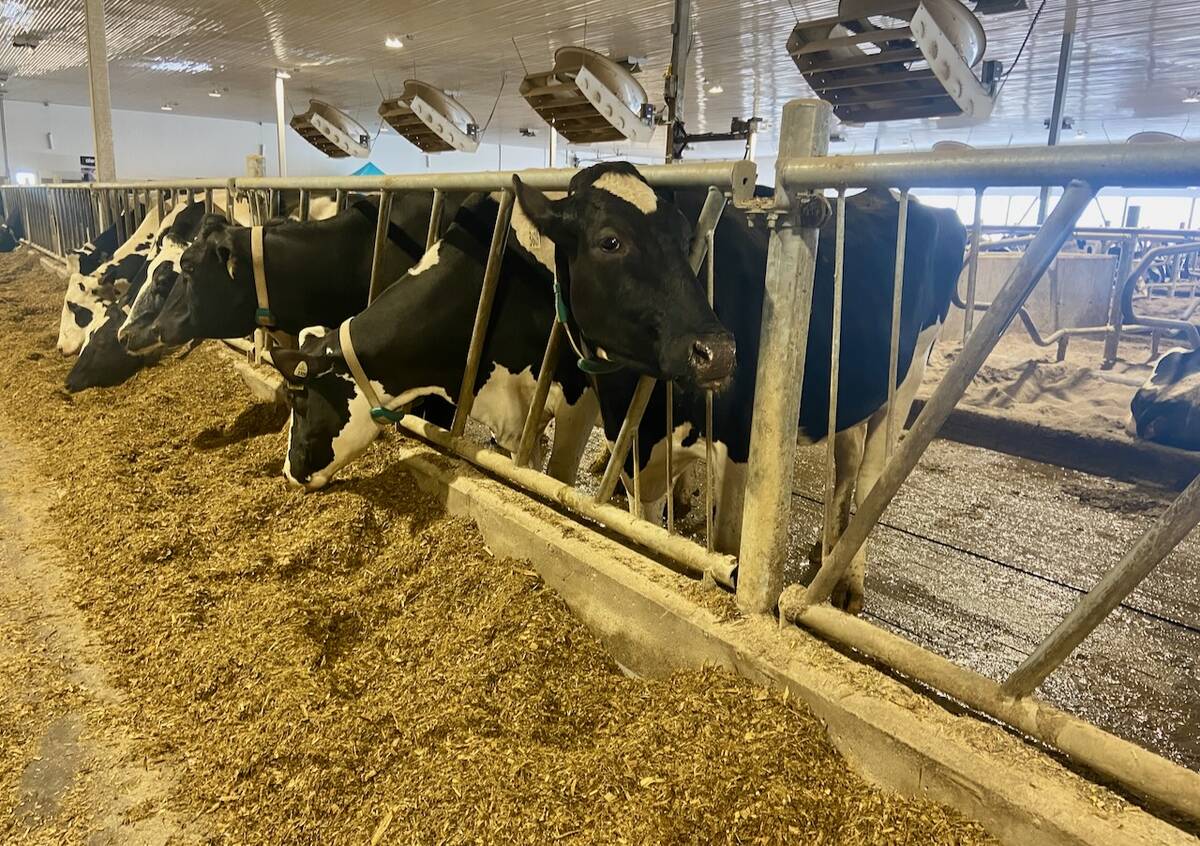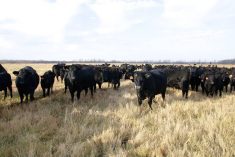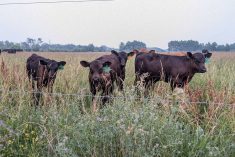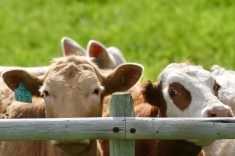CALGARY – Two American teenagers learned a costly lesson in ethics early this spring. They were forced to forfeit almost $50,000 and their trophies when their champion steers at the Western National Stock Show in Denver tested positive for a banned substance.
The grand champion sold for $37,500 and the reserve went for $12,000. The money has been returned to the buyers.
The steer carcasses were tested for drug residues after scars on the necks were noticed at the slaughter plants. The grand and reserve champions at the 1995 Denver show were later found to have residues of clenbuterol in their eyeballs using a new test that can trace the drug in the
Read Also

U.S. farm group supports supply management
U.S. grassroots farm advocacy group pushing new agriculture legislation that would move towards supply management like Canada has for dairy industry
retina.
Residues remain in the eye tissue for up to 150 days, although investigators in the Denver case testified the animals were likely injected regularly up to show time.
The youths, aged 16 and 18, have been banned from showing at the Denver Western National Show for life. Other livestock shows have been provided with details of the case and organizers of each show will decide whether the two will be allowed to enter, said Chuck Sylvester, manager of the Denver show.
Clenbuterol was developed in Europe to treat respiratory problems in horses and in Canada it is licensed only for horses. It’s mainly used for treating heaves, a type of asthma. The drug relaxes the muscles in a horse’s lungs. In cattle, the drug diverts nutrients toward muscle growth and away from fat tissue. Used on cattle it can increase muscle by five to 25 percent and reduce fat by 40 percent. People can become ill if they eat meat containing clenbuterol.
While the Denver case had a high profile, other incidents this year occurred at the Ohio State Fair, the North American Livestock Show in Louisville, Kentucky and the Tulsa State Fair in Oklahoma.
The problem has spread throughout adult and children’s open steer shows.
“An open show is a professional show. You expect the best of fitters. But if you get into tampering or altering the animal, then … that’s fraud,” said Sylvester.
While big prize money is a strong incentive for cheaters, Sylvester and Brad Morgan of the University of Oklahoma agree financial gain is only a part of it. Egos are to blame as well.
“Some of the people involved are very, very wealthy and, in my opinion, it’s an obsession to win at any cost. They like the glory that it brings them. They don’t care whose toes they step on or who they might harm,” said Sylvester.
The teenagers at Denver were used as examples but they are not the only ones at fault, said Morgan. Many professional handlers will do whatever it takes to win and they should not be allowed in show rings at youth shows, he said.
While family involvement is encouraged in 4-H and Future Farmers of America livestock programs, professional quality is not expected or wanted.
The steer that won the Western National Stock Show was sold at auction for about $37,000. How-
ever, records show the steer was purchased prior to the show for around $21,000.
Thrill of winning
“They’re not doing it for the money. They’re doing it for the thrill of winning something,” Morgan said.
Following hearings and an investigation, Denver show organizers are developing tighter rules to keep the show honest.
Details aren’t firm yet, but officials at the Denver show will restrict who gets into the area where youths work with their animals. That will include keeping professional fitters out.
Random drug tests will be carried out at the show and champion lamb, hogs and steers will all be tested.
As well, the emphasis on prize money will be reduced and more money will be diverted to scholarships.
As of 1997, proof of ownership will be required for all animals in the show.















